Monitoring CSR in Global Production Networks: Labour Rights and MNCs
VerifiedAdded on 2022/11/23
|12
|492
|67
Presentation
AI Summary
This presentation investigates the effectiveness of monitoring corporate social responsibility (CSR) in global production networks as a means of securing basic labour rights and standards. The presentation begins by defining key terms such as labour rights, labour standards, and CSR, highlighting their importance for businesses and society. It then explores the significance of CSR policies, emphasizing their role in enhancing public trust, attracting employees, and fostering responsible business practices. The core of the presentation involves a comparative analysis of two multinational corporations (MNCs), Netflix and Spotify, evaluating their CSR policies and their impact on labour rights. The analysis covers various aspects, including wage practices, working conditions, and employee benefits. The presentation concludes by considering the present scenario, emphasizing the connection between CSR policies and human rights as recognized by international communities, and providing relevant references to support the arguments made.
1 out of 12

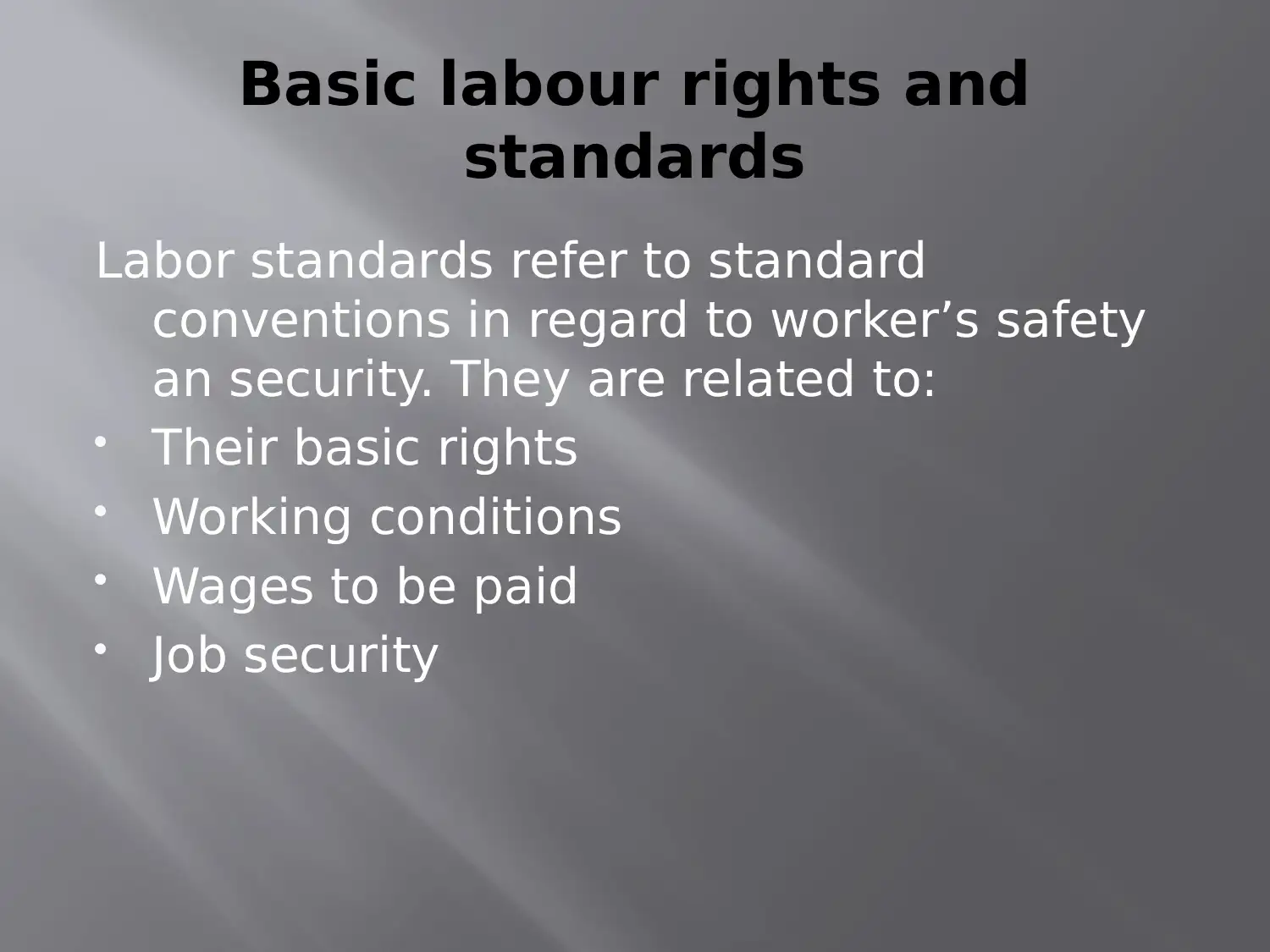
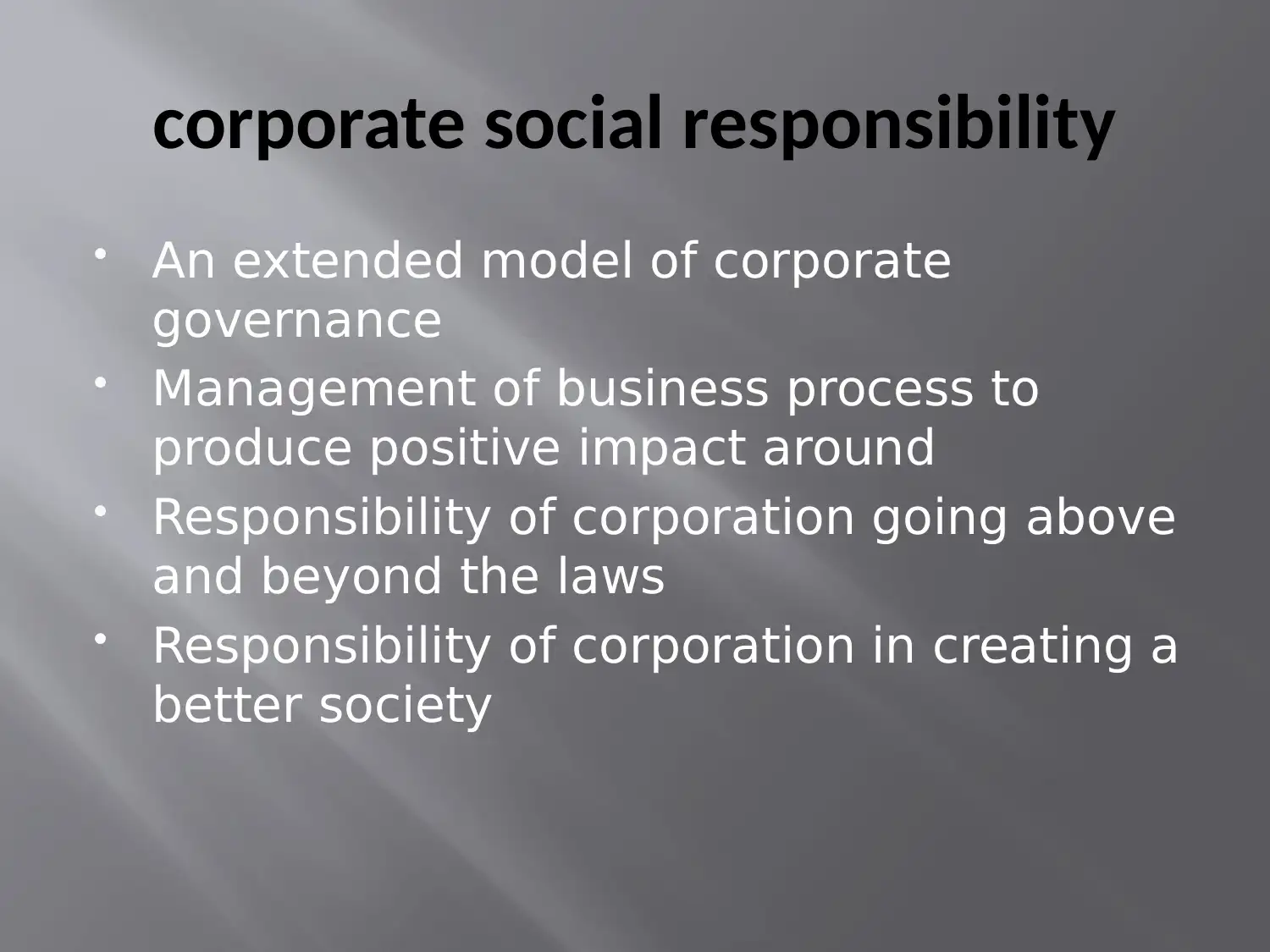

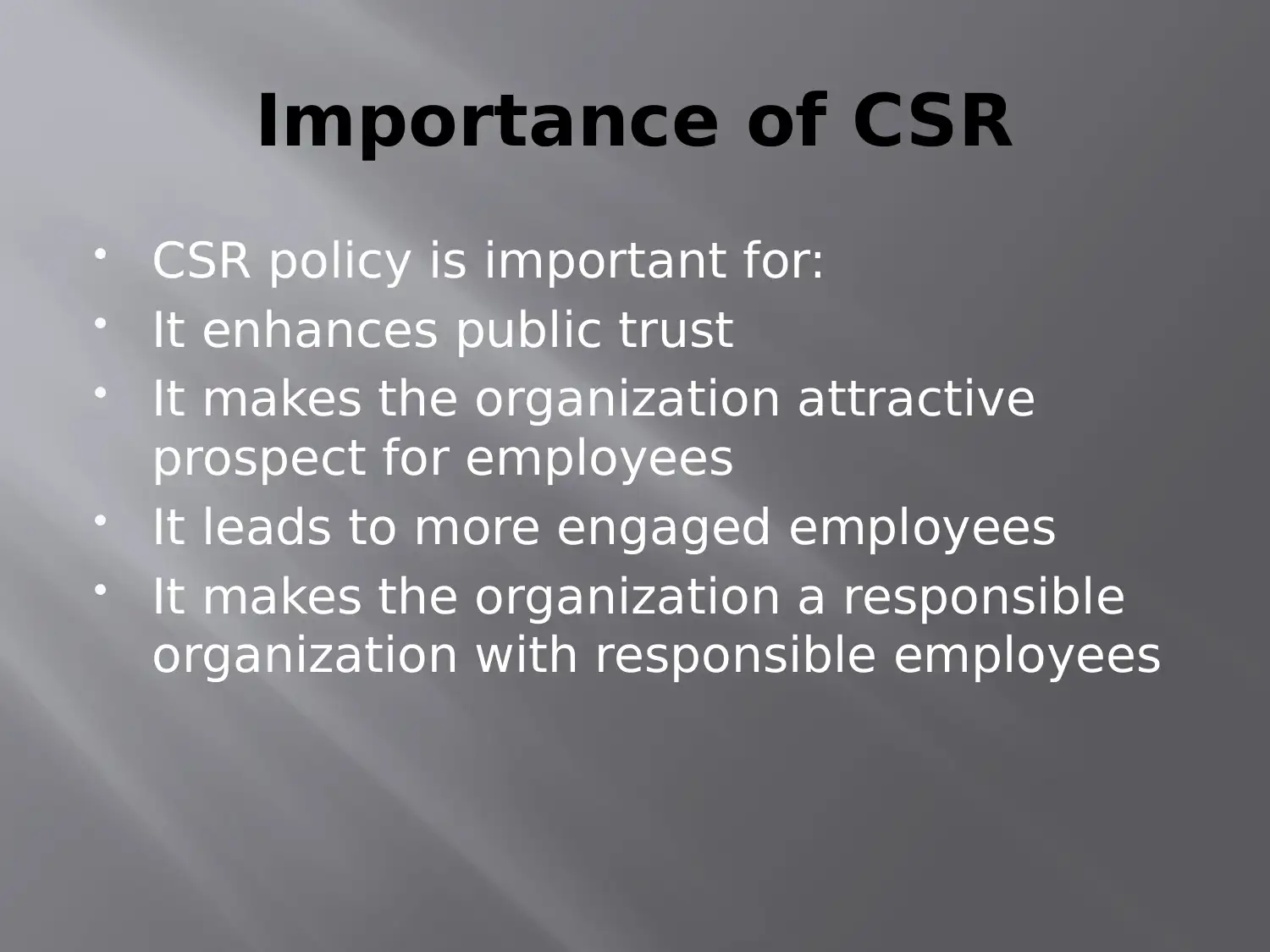


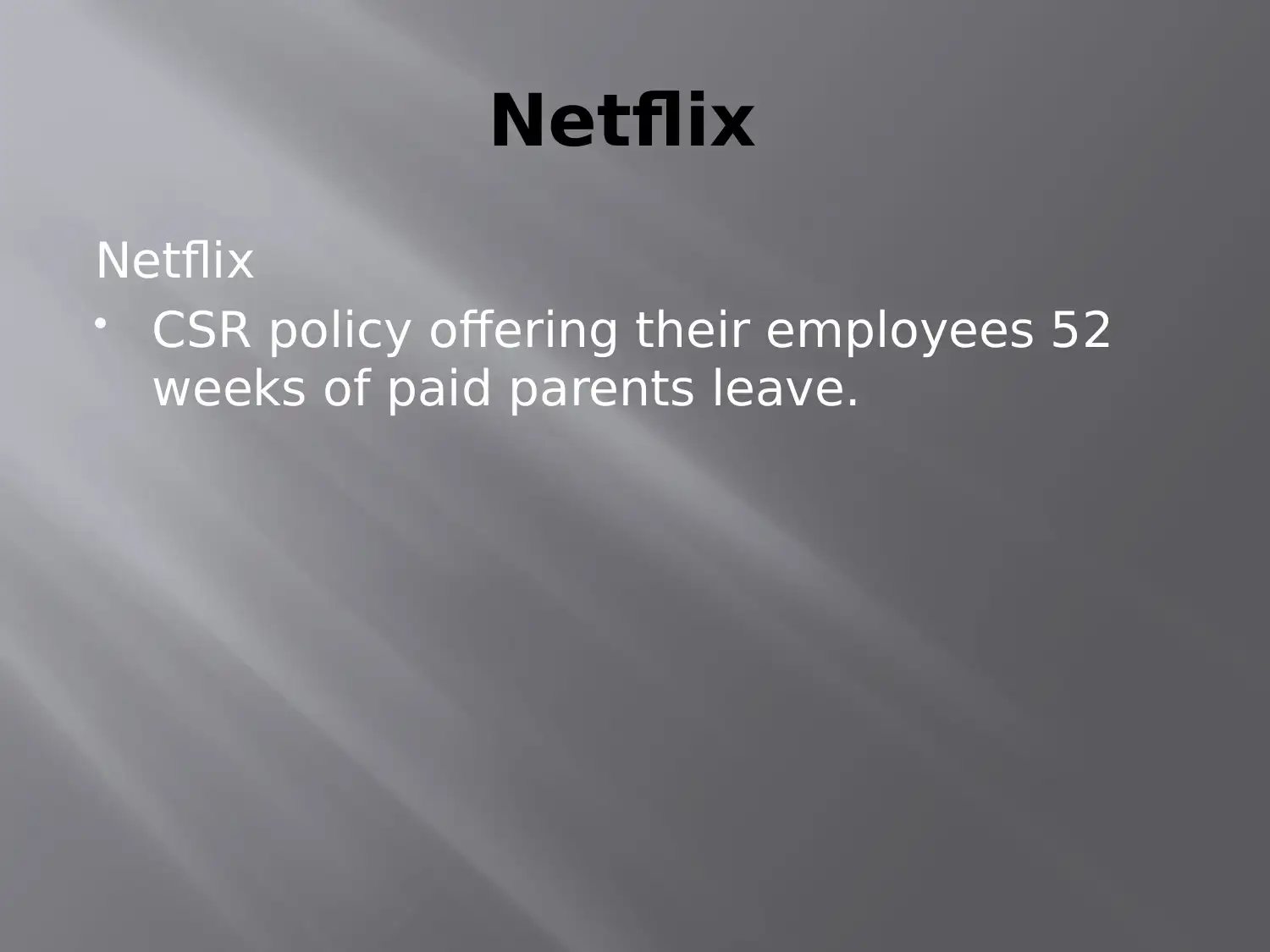

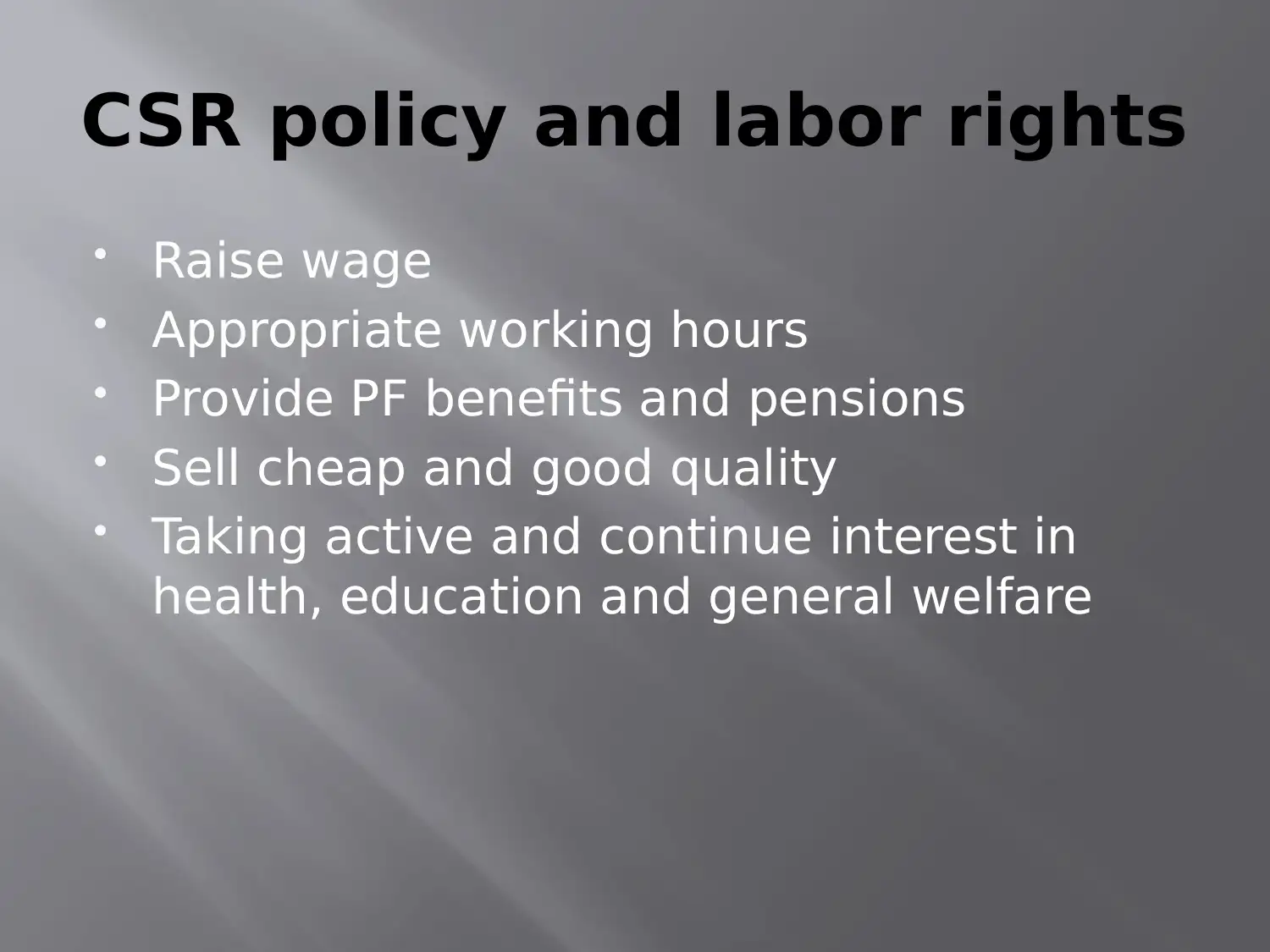
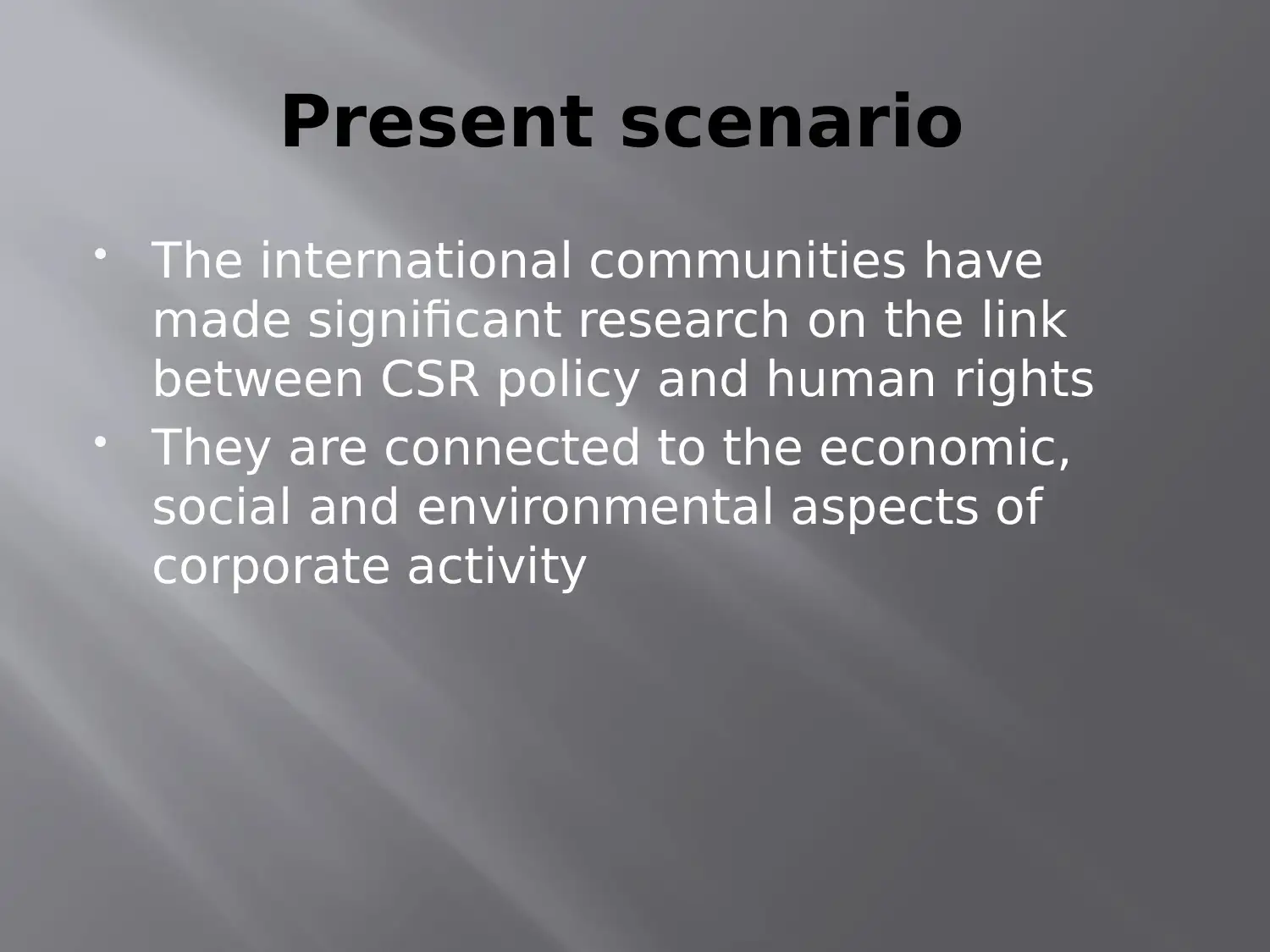
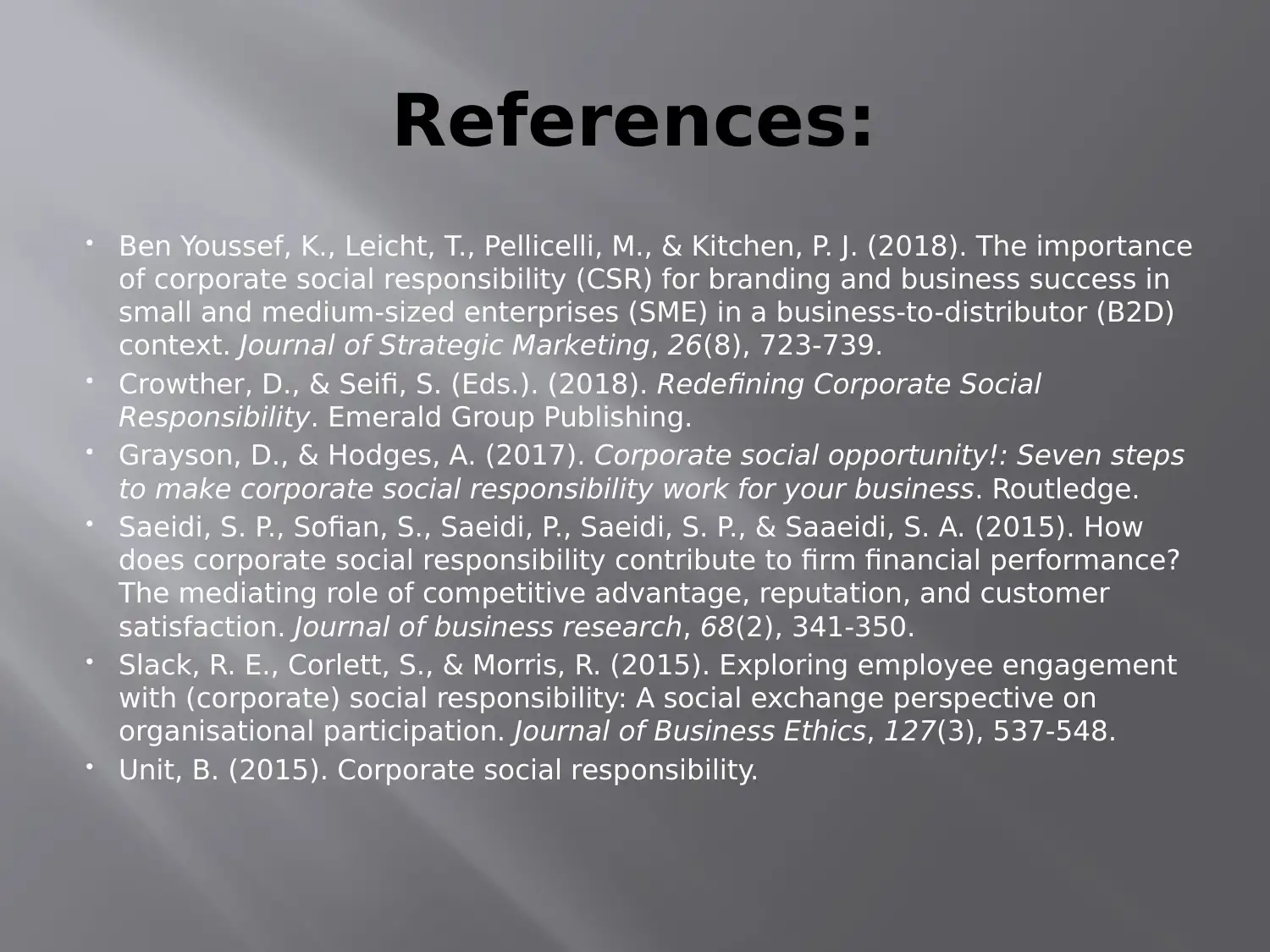







![[object Object]](/_next/static/media/star-bottom.7253800d.svg)